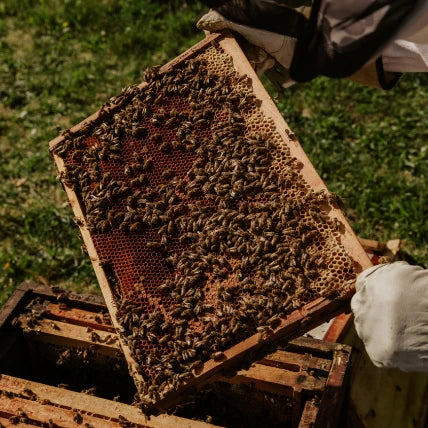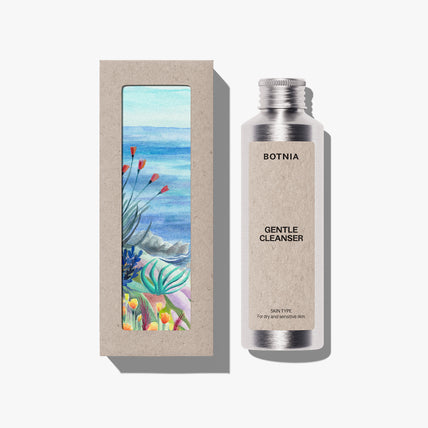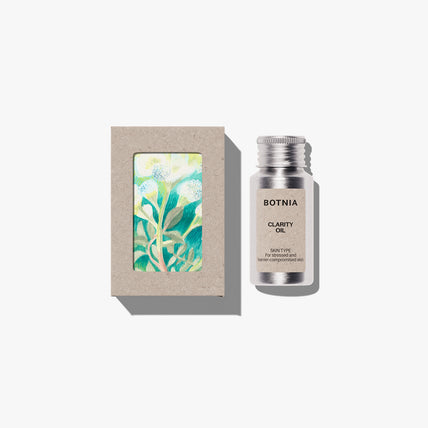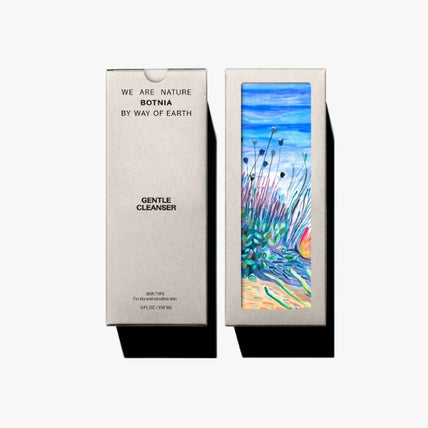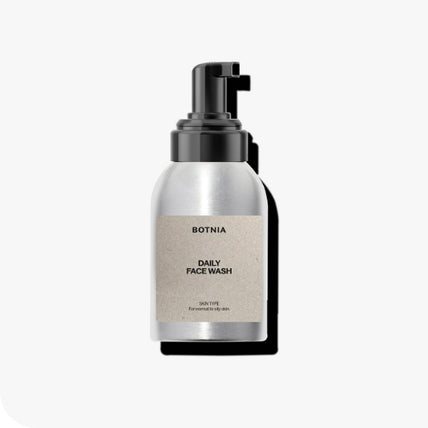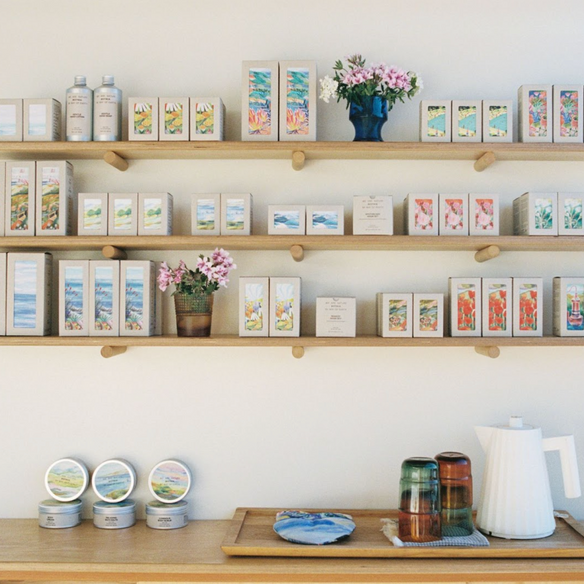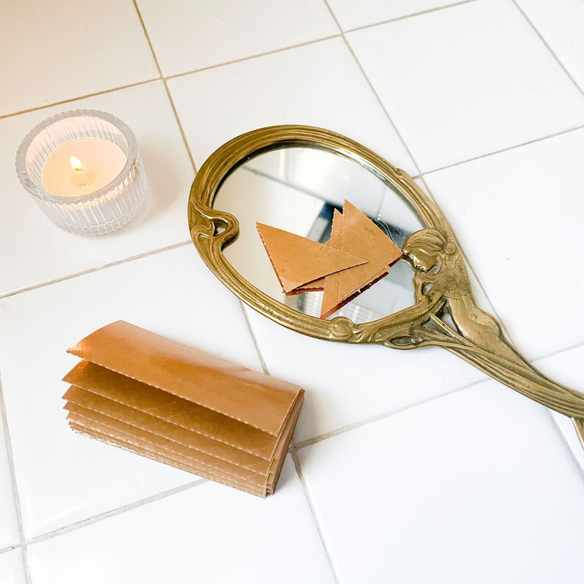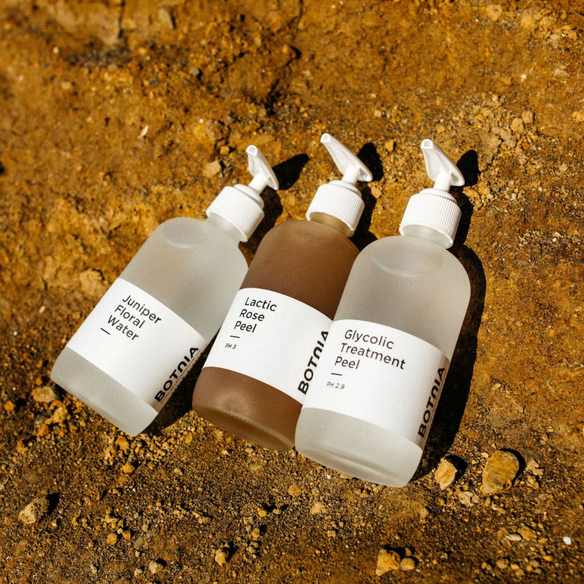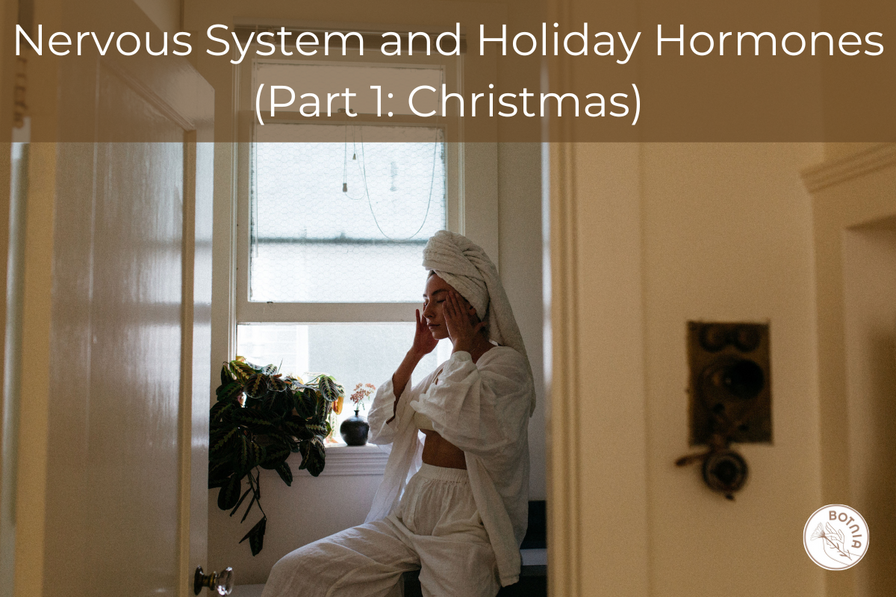
Nervous System and Holiday Hormones (Part 1: Christmas)
It’s the most indulgent time of the year: heavy (but delicious) holiday meals, family get-togethers, reuniting with friends…. A million things are happening, so of course, we might feel stressed!
We sat down with our in-house herbalist, Isabella, and her friend and colleague, Nisa Brown, a Marin County-based Craniosacral Therapist who specializes in nervous system regulation, to chat about how the holidays affect our hormones and our skin.
Understanding our body systems//
Let’s talk first about science and how our body functions.
The nervous system has two main parts. The central nervous system is made up of the brain and spinal cord. The peripheral nervous system is made up of nerves that branch off from the spinal cord and extend to all parts of the body. These nerves connect the brain to various parts of the body, sending electrical pulses and controlling them.
Our endocrine system uses chemical substances (aka hormones) to regulate cells and our organs. These hormones travel through the bloodstream in specific concentrations and control the actions of our cells and organs. Here’s a breakdown of the most common hormones and their overarching roles in our bodies (though hormones functions are more complex than this):
-Thyroid Hormone: Regulates metabolism
-Adrenaline (epinephrine): Involved in “fight or flight” response
-Cortisol: Involved in “fight or flight” response, regulates metabolism and immune responses
-Estrogen and Testosterone: Reproductive development
-Insulin: Regulates blood sugar and fat storage
See the full chart of all hormones and their functions here.
These systems work in harmony to keep our bodies functioning normally. The endocrine system is triggered by neurons in the brain that control the pituitary gland. The pituitary gland produces hormones that monitor and regulate many bodily functions. These hormones are then pumped into the blood, telling our endocrine glands to increase or decrease hormone production. This whole process is called a “feedback loop,” because it uses the brain to communicate to the pituitary gland, to an endocrine gland, and then back to the brain again.
Seeing how the body systems are connected, it makes sense that every action we take will have an ending result on our bodies.
The good: Feelings of Joy = healthy happy skin//
The holidays are a special time of year when we reconnect with our friends and family to celebrate. A concoction of happy hormones (dopamine, serotonin, oxytocin, and endorphins) helps to create positive feelings (like happiness) that are felt when we gather together. Some of these hormones relieve stress and anxiety in the body as well as create glowing skin! When our blood sugar is balanced and our hormones are communicating properly, our skin is healthy and vibrant. It’s more complex than one group of hormones keeping another in chek, our circadian rhythms play a huge role in this checks and balances as well as vitamins and minerals. We want to make sure our bodies have a balanced amount of all hormones to keep our body regulated.
The Healing Power of Connection
For many of us, the holidays may bring up feelings of grief, pain, or loneliness. However, it can also be a time to reflect upon positive memories from the past, or build new moments of connection with those who we love, who we may only get to see this one time of year. One of the best ways to support the health of our vagus nerve is through positive connection. It belongs to the branch of the nervous system that specifically responds to human connection, and is often referred to as “the social nervous system.” We can pay attention to especially nourishing moments of connection, letting them be the balm that gives us those “happy chemicals” mentioned earlier, as well as being a resource for supporting nervous system regulation. We may need to ask our partner or close friend for a hug or a quick phone call after a stressful interaction. If we only get to see a beloved family member once or twice a year, let this be a time in which we can soak up that extra juice for our nervous system and nourish that connection even more than usual. Though holiday stress can, at times, be due to family or relational dynamics, our positive connections can also be our strongest resources during this time.
The bad: Why holiday stress = hormonal breakouts//
When we’re stressed, the hormone cortisol is pumped throughout our bodies, helping us to activate “fight or flight” mode, and our adrenal system works overtime to help us “survive” in difficult situations. It takes a lot of nutrients to be stressed. Large amounts of cortisol in the body zap energy from every organ, lowers immunity, slows digestion, makes blood vessels more fragile, and slows down the production of skin cells (by almost half!) which can result in premature aging. It’s why other skin conditions such as eczema, rosacea, or psoriasis can also appear when stressed. High levels of cortisol signal the skin to produce more sebum which, in excess, can clog pores and cause pimples. Cortisol also breaks down elastin and collagen (the building blocks of skin), further dehydrating the skin and causing fine lines and wrinkles. Stress is the emotion that has the biggest effect on aging!
Stress eating
Let’s look at the gut and how our diets affect the skin. The vagus nerve, a nerve pathway that’s connected from the gut to our brain, operates as a two-way street. The vagus nerve is responsible for dealing with stress, anxiety, and fear and is more commonly known as our “gut feeling.” If dysregulated, it affects how we digest our foods and slows the breakdown of nutrients that are absorbed into different parts of the body. A stressed gut will shut down and inhibit sending nutrients to the skin. In stress mode, our skin is determined to be non-essential and will be one of the last places to receive nutrients.
Eating sugar releases endorphins and dopamine, giving you that “watermelon sugar high” (thanks Harry!). However, when we use this coping mechanism to feel good in the moment too often, it’ll definitely have long term side-effects. Those with acne know the cycle all too well. Indulging in sweet treats makes you feel good, but leads to inflammation in the body and skin– it’s a perpetuating cycle that’s hard to break. Using bitters or eating sour foods or protein can help to curb sugar cravings. Nutrient-deficient meals will impact the skin in indirect ways. The skin doesn’t operate in isolation; rather, our body is connected and every system affects the others.
The ugly: You’ve broken out, now what?//
How do we regulate our bodies during this time of year if we can’t avoid all the indulgences? We’ll share a couple of tools from Nisa for regulating stress during the holidays.
Mindfulness While Eating
The holidays are the most challenging time of year for many of us to maintain healthy eating habits. However, just as important as what we eat is how we eat. Not only are we likely to eat foods that are typically on the “don’t” list during this time of year, but we’re also more likely to be sharing meals in potentially stressful or high-energy situations, such as meals with family members or on-the-go when traveling. Because our vagus nerve rules gut motility, the calmer we are when eating, the greater the capacity of our digestive system to properly absorb this food, even if it’s that special piece of high-sugar, gluten-filled apple pie with ice cream on top.
- Taking a moment to feel our bodies in our seat, notice our breath, and pause before eating will go a long way in bringing us back to a place of regulation.
- Try to slow down while eating, even if it’s during a family conversation.
- Chew slowly. The importance of paying attention and really chewing our food and putting our utensils down and pausing, even just for a moment, when eating
This intentionality can also help us notice when we’re feeling full, so that we will be less likely to overeat.
A skincare routine for stress
Keep it simple with a cleanser, toner or hydrosol, and moisturizer. Your skin is already stressed, don’t make it do more work than it needs to. Cleanse away the day and then nourish your skin with nutrients that help to aid your skin in healing.
To fight acne, add in our Clarity Oil to bring down inflammation and fight bacteria that cause pimples. Once a week, use the Fix-Zit Mask to further soothe acne and inflammation. Pour yourself a cup of calming chamomile tea–you can even mix a little tea into your face mask for your skin to absorb the properties transdermally. Together, this is a great topical and internal approach to help support your nervous system.
To fight dryness and dehydration, carry around a hydrosol and spritz throughout the day. Using our hydrating serum with hydrosol or toner will help bring the moisture back into your skin. Incorporating an occlusive face cream during the winter will also help protect your skin from cold winter weather.
The goal is to bring your body back to balance and your practice doesn’t have to be perfect. Be gentle with yourself and rely on a couple of tools to be your anchors this time of year as you’re traveling, gathering with family, or just being in the busyness of the holidays. Read part two, where we share more tips for relieving holiday stress!
Merry Merry,
Botnia, Isabella & Nisa
Resources:
Isabella Ayala de Credico, Clinical Herbalist isabella@tryearthallies.com, Earth Allies
Nisa Brown, nisa@nisabrown.com, Craniosacral Therapy for Nervous System Regulation & Renewal
We love Farmacopia for all its herbal remedies. Download their Winter Gut and Stress Soother guide for more details about the gut and gut support.
Please note: The information in this post is only for educational purposes only and does not offer medical advice. Please contact your doctor or health practitioner directly if you have any medical conditions that need attention.
